Lifestyle
Humanitarian organizations in Türkiye provide Ramadan aid locally, globally
Humanitarian organizations in Türkiye are set to bring relief to those in need during Ramadan, focusing on earthquake-affected areas in the country as well as regions like Gaza and Syria. Through civil society organizations (CSOs), Türkiye will extend aid to millions worldwide throughout Ramadan.
The Turkish Red Crescent (Kızılay) has launched its Ramadan efforts under the theme “Our Hearts and Tables Are One This Ramadan,” aiming to reach 7.1 million people with assistance worth TL 1.922 billion ($52.8 million).
During Ramadan, Kızılay plans to distribute financial aid, food packages, canned meat and holiday clothing, as well as provide over 65,000 iftar meals daily. Additionally, it will allocate TL 462 million in cash aid to over 672,000 people in Türkiye, with TL 128.5 million designated for 184,000 individuals in 11 provinces affected by last year’s earthquakes.
In-kind food aid worth TL 400 million will be distributed nationwide to more than 764,000 people, with TL 113.3 million allocated to over 206,000 people in earthquake-affected regions.
Kızılay will send a new “Kindness Ship” carrying 1,000 tons of aid to Gaza as part of its special Ramadan initiatives.
Türkiye Diyanet Foundation aids 2.5 million
The Türkiye Diyanet Foundation (TDV) will provide TL 450 million in aid during Ramadan, including food packages, shopping cards and holiday clothing, reaching around 2.5 million people both in Türkiye and abroad.
In the earthquake-hit region, TDV will serve iftar meals to 135,000 people through six community dining tables.
Additionally, TDV will deliver 50 humanitarian aid trucks to Gaza to provide iftar, suhoor and hot meals to 250,000 Palestinians throughout the holy month.
Through its “Gift a Quran” project, which it is conducting in collaboration with the Presidency of Religious Affairs, TDV will distribute 73,000 Qurans, printed in nine languages, to Muslims in 19 countries.
Moreover, the foundation will open 48 new water wells and fountains in 10 countries, benefiting approximately 391,100 people.
IHH aids 67 countries
The Humanitarian Relief Foundation (IHH) plans to assist 4 million people in 67 countries during Ramadan.
In Türkiye, IHH will distribute food packages and grocery cards to 50,000 families across all 81 provinces and provide 20,000 additional food cards to needy families. Internationally, the organization will deliver 50,000 food packages to disadvantaged families.
IHH also has special programs for children and plans to provide Eid clothing for orphans in 15 countries.
Deniz Feneri expands to 25 countries
The Deniz Feneri Association aims to reach over one million people in 25 countries, including Türkiye, under the theme “Share Your Table During Ramadan.”
In response to the ongoing humanitarian crisis in Gaza, the association will establish a tent city for 1,000 displaced families, alongside providing emergency aid supplies and food packages.
In Syria, it will serve thousands through soup kitchens and free clothing stores in Damascus and Aleppo, offering hot meals and bread to 10,000 people daily during Ramadan.
Across three continents and 25 countries, Deniz Feneri will distribute food parcels, while in Türkiye, 50,000 families will receive grocery cards.
On the 15th day of Ramadan, marked as “Orphans Day in the Islamic World,” the association will organize iftar gatherings for orphans in 25 countries. Donors can sponsor an orphan’s Eid clothing with a 1,500-lira contribution.
IDDEF provides aid in 56 countries
The Federation of Associations that Value Humanity (IDDEF) will provide Ramadan aid to those in need across 56 countries, with a primary focus on Gaza.
IDDEF will distribute zakat, fitr, fidya, food packages and iftar meals in Türkiye, Africa, Asia, the Middle East and the Balkans, prioritizing regions suffering from drought, hunger and internal conflicts, as well as students in religious schools and their families.
Aid will be sent to crisis-affected regions, including Gaza, Yemen, Syria, Somalia and Afghanistan, and the organization will also provide iftar and suhoor meals for earthquake survivors in Türkiye.
Hayrat Humanitarian Association reaches 33 countries
The Hayrat Humanitarian Aid Association will extend aid to needy people across 33 countries during Ramadan.
Last year, the organization helped over 965,000 people in Türkiye and 31 other countries. This year, it plans to provide iftar and suhoor meals in 33 countries.
The organization will distribute essential food items such as oil, flour, legumes, salt and sugar, and collected zakat and fitr donations will be directed to disaster-stricken regions and vulnerable communities worldwide.
On the 15th day of Ramadan, marking “World Orphans Day,” Hayrat will organize special programs for orphans, including Quran distribution for students and Eid clothing donations for children.
Sadakataşı Association aids 30 countries
The Sadakataşı Association will carry out Ramadan relief efforts in 30 countries, focusing on Türkiye and Palestine.
In Türkiye, the association will operate in 20 provinces and provide needy families with zakat, fitr, grocery cards, food parcels and Eid clothing.
In Gaza, Sadakataşı will distribute 2 kilograms of bread daily to 3,000 families and serve iftar meals to 5,000 people through its volunteer teams.
Orphan Foundation to Provide Ramadan Aid in 28 Countries
The Orphan Foundation will support orphaned children and their families in 28 countries during Ramadan, including Türkiye, Afghanistan, Myanmar, Albania, Azerbaijan, Bangladesh, Bosnia-Herzegovina, Burkina Faso, Chad, Palestine, Ghana, Guinea, India, Iraq, Iran, Kenya, Lebanon, Mali, Mauritania, Nepal, Somalia, Sri Lanka, Sudan, Syria, Togo, Tunisia, Yemen and Zimbabwe.
Operating under the slogan “Touch a Heart This Ramadan,” the foundation will distribute food parcels, iftar meals, zakat, fitr, and fidya to struggling families. Special Eid clothing packages will also be provided to orphans to help them celebrate the holiday.
In Gaza, where people have endured 15 months under heavy bombardment, the foundation will launch a dedicated relief program.
Additionally, the organization aims to include 5,000 orphans in its sponsorship system this Ramadan, allowing donors to support a child through its website.
Aid to reach from Gaza to Syria, Myanmar to Somalia
The Cansuyu Association will extend aid efforts beyond Türkiye to crisis-stricken areas, prioritizing Gaza and Syria.
The Beşir Association will provide humanitarian assistance to regions affected by earthquakes in Türkiye and conflict zones such as Gaza, Yemen, Myanmar and Somalia.
These humanitarian organizations will continue their Ramadan efforts, delivering vital relief to millions worldwide.
Lifestyle
Cherry blossoms calling: What to expect in Japan 2025
As winter fades, the world eagerly anticipates one of nature’s most breathtaking spectacles: cherry blossom season. This year, travelers from all corners of the globe will flock to Tokyo’s Ueno Park, Kyoto’s Philosopher’s Path and Washington’s Tidal Basin to witness this poetic transformation. Whether you’re strolling under sakura trees or simply admiring them from afar, one thing is certain cherry blossoms remind us to slow down and embrace the present.
As a guest of Japan’s largest airline, All Nippon Airways (ANA), I recently had the privilege of experiencing Japan’s early sakura season. With ANA’s new direct flights from Istanbul Airport (IGA) to Tokyo Haneda Airport, which started on Feb. 12, 2025, exploring Japan has never been easier. Three flights a week now connect the two countries with deep cultural ties, bringing a wave of excitement for travelers longing to immerse themselves in the elegance, cleanliness and refined aesthetics of Japan. But why is everyone suddenly eager to visit Japan? Perhaps it’s the timeless beauty of Kyoto’s ancient temples, the neon dreams of Tokyo, or the simple joy of witnessing sakura bloom a fleeting reminder that life, like cherry blossoms, is delicate and temporary.
Kyoto: Walking through time
Kyoto is where Japan whispers its past. The streets, lined with traditional machiya houses, transport you to an era when samurais roamed and tea ceremonies dictated social rituals. My journey began in Arashiyama, home to the ethereal Bamboo Forest, a place where the wind sings through towering stalks, creating a natural symphony of tranquility. Not far from here, Fushimi Inari Taisha awaits, its vermillion torii gates stretching endlessly, leading pilgrims to the mountain shrine. Walking through them, I was reminded of a Zen proverb: “The obstacle is the path.”

Osaka: Kitchen of Japan
Osaka is a feast for the senses. Known as “Japan’s Kitchen,” this city thrives on street food and vibrant nightlife. Dotonbori is the heart of the action, where neon lights reflect off the canal, and food stalls serve up steaming takoyaki and okonomiyaki. If Kyoto is a quiet tea house, Osaka is a loud, bustling izakaya both essential to Japan’s character.
Tokyo’s cherry blossoms, lively streets and rich cultural landmarks create an unforgettable spring experience in the heart of Japan
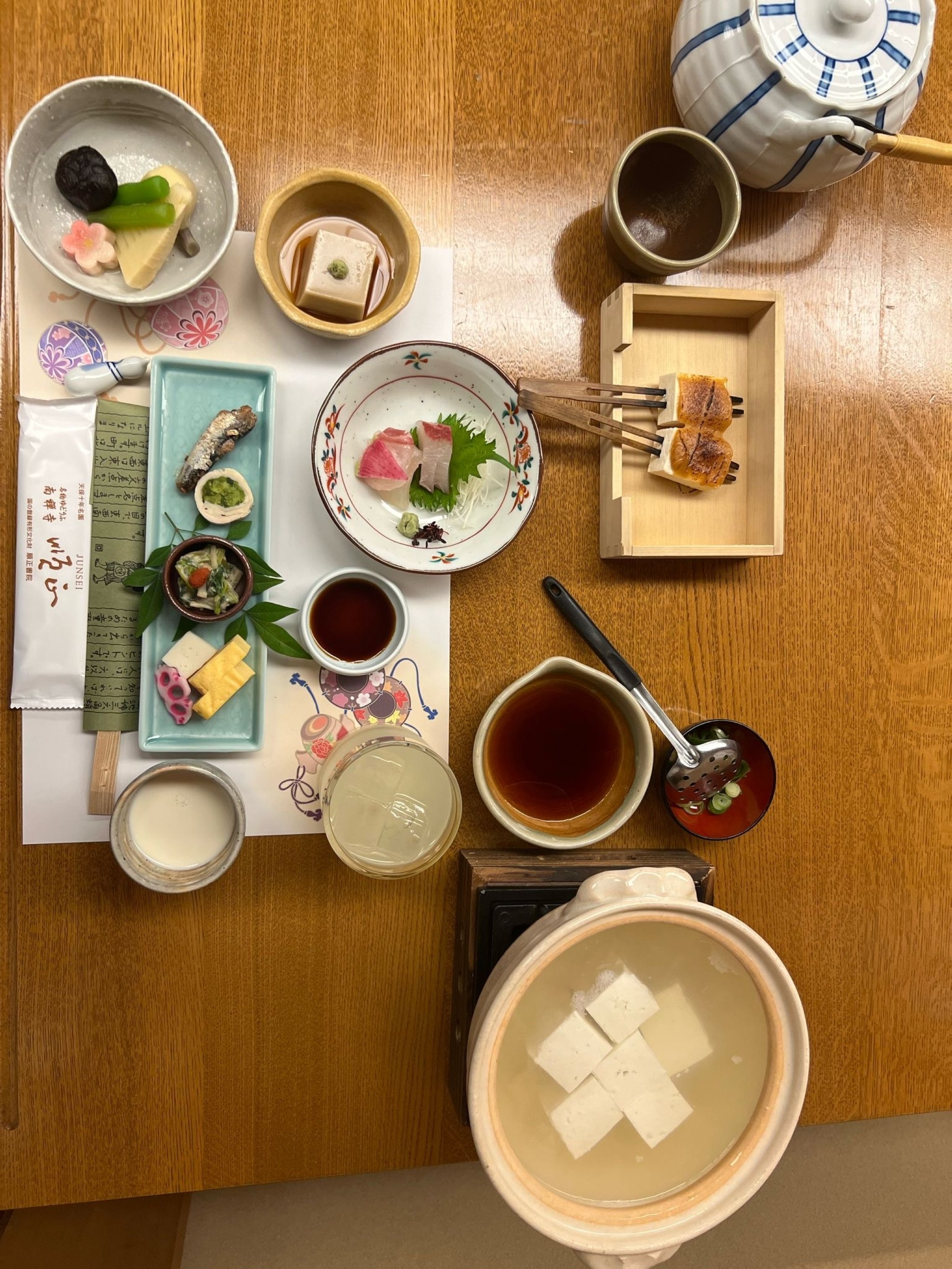
Lost in Tokyo’s museums
Tokyo is another world one that must be seen before you die. A city of contradictions, it balances tradition with cutting-edge innovation. In Ginza, the world’s most luxurious brands find a home in sleek glass towers, while Omotesando is a runway of architectural masterpieces. Then there’s Roppongi, where art and nightlife intertwine Mori Art Museum being a must-visit.

For a digital dreamscape, teamLab Planets Tokyo offers an immersive art experience like no other. Here, you walk barefoot through water, step into a field of infinite flowers and lose yourself in an ocean of light. It’s not just an exhibition – it’s an awakening.

For a different kind of sensory experience, Tokyo’s animal cafes are a quirky yet heartwarming stop. From owl cafes to capybara cafes, you can sip matcha while sharing space with these gentle creatures. Speaking of matcha, Matcha Paradise offers an unusual twist matcha-infused water, a pure and meditative way to taste Japan’s favorite tea. As the zen proverb says, “Let go of your worries and be completely clear, like the water of a deep lake.”
Walking along Omotesando Avenue toward the Nezu Museum, I found myself immersed in Tokyo’s seamless blend of modernity and tradition. As I entered, a serene bamboo-lined pathway welcomed me, setting the tone for the tranquility that awaited inside.

The museum’s collection, a refined showcase of Japanese and East Asian art, was simply mesmerizing – delicate scroll paintings, ancient ceramics and intricate tea utensils, each piece telling a story of craftsmanship and heritage. Beyond the art, the museum’s garden, with its winding stone paths and hidden tea houses, felt like stepping into a timeless sanctuary in the heart of the city.
Sakura: Poetry of petals
And then, the moment the world waits for sakura season. A fleeting spectacle that paints Japan in hues of pink and white. Cherry blossoms are not just flowers; they are a philosophy. The Japanese concept of mono no aware – the bittersweet awareness of impermanence is embodied in these delicate blooms. For a few days, the country pauses, gathers under the trees and celebrates hanami, the art of appreciating beauty that will soon disappear.
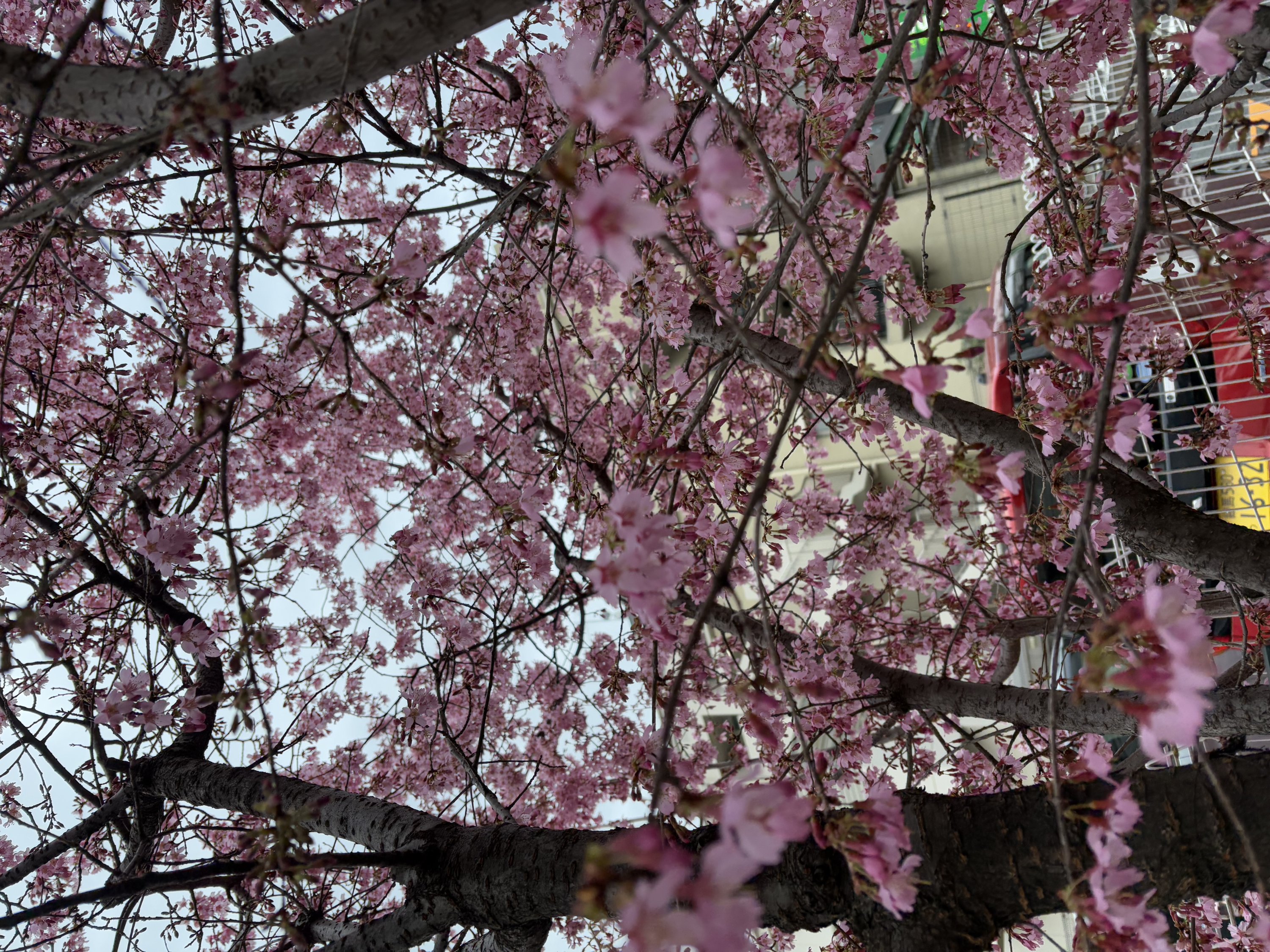
In my opinion, there’s something deeply poetic about seeing cherry blossoms in full bloom. As I stood beneath their delicate petals, I couldn’t help but feel the fleeting nature of life itself. Like cherry blossoms, life is fleeting so bloom while you can. Their beauty lasts only for a moment, reminding us to embrace the present, to live fully and to appreciate the small wonders before they fade away.
From Kyoto’s timeless temples to Tokyo’s electrifying streets, Japan is a place that teaches you to be present to savor each moment like the last petal of a falling cherry blossom. If you haven’t been yet, now is the time.
Lifestyle
True meaning of abundance in Islam
Nothing exists solely by itself. In a vast and intricate web of relationships, objects and events are interconnected in difficult-to-define ways. When an element is removed or altered, unexpected consequences arise elsewhere, often surprising us. When something is done in accordance with or in violation of a system, we witness uncontrollable phenomena as if the mechanism has been set in motion. To reverse the effects, one must often return to the very beginning. The relationship between cause and effect is rarely predictable.
In this context, the ecosystem within the social and moral lives of Muslims provides strange examples of how events can trigger one another. Sometimes, well-intentioned regulations may lead to seemingly unrelated outcomes, shaking the order at its roots. Like interconnected vessels, an entire structure can be affected by the displacement of a single concept, gradually leading to its deterioration.
When discussing faith in angels, Muslim intellectuals have attempted, for various reasons, to make the unseen visible. The impact of these diagnostic and materialistic tendencies on our lives is debatable; however, one thing is certain: the claim of making life more predictable has drained a fundamental concept of its meaning – abundance (“bereket” in Turkish)! So much so that abundance itself seems to have disappeared from the lives of Muslim communities.
In a marketplace steeped in Muslim culture, a shopkeeper greets a customer with the phrase: “Siftah (the first sale) is from you, abundance is from God.” This phrase, passed down from ancestors to descendants, acts as a mysterious code – almost a foundational principle of commerce. Like the “Ali Baba and the Forty Thieves” phrase “Open Sesame” unlocking a treasure-filled door, this expression opens the gates of sustenance in the marketplace. On one hand, it reflects the merchant’s acknowledgment that God is the provider of sustenance; on the other, it involves the customer in this testimony: the abundance of all our endeavors belongs to God. Muslims understand that any endeavor excluding God is bound to be devoid of blessing – destined to be barren. Thus, the bismillah (in the name of God) that opens a shop and the concept of abundance complement each other like two main pillars, linking our daily work to God and affirming our Muslim identity.
Deep trust, submission, diligence and generosity form the ethical foundation of the Muslim marketplace. This principle – “remembering God amid society” or “turning the heart toward God while engaged in work” – ensures that God remains present in daily life. Nothing else is needed. Even a whole month of Ramadan might not be enough to reflect on what we have lost through the materialization of abundance.
Although abundance can have various meanings, it is ultimately a concept that describes a connection with God. It signifies the increase of goodness or benefit to the extent that it reaches others. The 13th-century Sufi metaphysician Sadr al-Din al-Qunawi explains the concept of abundance with this example: “The abundance of the sun is its rays.” The rays are proof of the sun’s existence. Because the sun’s existence is perfect, its light overflows naturally. We recognize the sun through its light. In this sense, abundance produces an outcome. It forms a link between its source and its recipient.
When the Prophet Muhammad greeted God during his ascension (Mi’raj), God responded with Mercy and Blessings. Over time, the meaning of abundance narrowed, reducing it to a mere increase in material possessions. For many, it became a term that meant the desire for more wealth when resources seemed insufficient. Yet, true abundance refers to the spiritual force hidden within the material world.
Above all, when we think of abundance, our first thought should be of God and our connection to Him. More precisely, something is abundant if it links us to God or reminds us of Him. Whatever fulfills this function is abundance, and abundance resides within it. For this reason, guests bring abundance to a home – because they remind us of God. The abundant portion of our earnings is the part that reminds us of God. The abundance of knowledge lies in the wisdom that brings us closer to Him. When a child is born, the home becomes abundant, for the child is a gift from God, reminding us of Him. The last bite of a meal carries abundance, for after it, we give thanks to God, connecting the meal to Him and giving eating and drinking their true meaning. If we have lived our lives with the awareness that we are always in the presence of God, then our life has been abundant. When someone says, “May God grant you an abundant life,” it is not merely a chronological wish – it is a prayer that one’s life may be enriched with wisdom and meaning.
The examples could go on. Abundance is not about narrowing life down to material gains but about expanding and making it eternal by linking it to God.
Lifestyle
Nature as a manifestation of God
During the modernization process, Muslims sought to develop a rational understanding of nature by attributing their backwardness to an inherited misconception of the universe. Initially, they identified angels with the forces of nature and the good feelings in our hearts. Meanwhile, they reinterpreted jinn and devils as harmful thoughts within us or in our surroundings – even as microbes – thus stripping them of their individuality. Believing that our focus on the unseen world distanced us from nature and reality, they aimed to make the invisible visible, the unknown known, thereby elevating human responsibility and reason. To them, preoccupation with the unseen encouraged an escape from responsibility. By narrowing the influence of invisible beings in nature and life, they assumed they could expand the domain of the mind.
In mythological conceptions of the universe, a hierarchy of power governs the conflicts among beings, with order being established only through great struggle. Good and evil forces are in constant battle, and each entity possesses power in its own right. Even if these forces eventually converge, a structured hierarchy remains intact. The universe is divided between good forces – angels – and evil forces – jinn or devils. Humanity, caught in this war of powers, is helpless and oppressed. The only recourse is reason. Although this mythical language has evolved, it still persists in modern literature and cinema. No matter how much life changes, our perception of existence remains defensive: we continue to view the universe as a battleground between good and evil, unwilling to reach the root of the conflict.
Religion disrupted this cosmic vision by placing God at the center of existence, even identifying Him as existence itself and eliminating all secondary beings. Speaking of independent entities that possess power, engage in conflict, or act beyond control was deemed audacious against divine will. Everything is in its rightful place, and all is under the absolute control of divine will. If He wills something, it happens; if He does not, it does not. The universe belongs to God, and everything is under His command.
Such a perspective unites all opposites in a magnificent harmony, bringing them to a single point: submission and obedience to God without resistance. That humanity may fail to grasp this grand harmony does not justify alternative interpretations of reality. Within this understanding of the universe, beings exist only by divine will.
Consequently, belief in angels signifies the dissolution of any independent power structure in the universe for the sake of God. A believer, by affirming faith in angels, declares: “I reject the notion that anyone other than God has power. There is no god but God.” In other words, no one but Him has authority or command. God is One, and there is no other force or power besides Him. Yet, paradoxically, the word angel derives from a root meaning power or strength. Religion conveys this message: What you perceive as power is actually God’s power, and the angel represents this truth. Something is powerful only insofar as it is connected to and dependent on divine will.
Faith in angels negates the idea that the universe operates with independent forces, instead directly linking the world and nature to God’s absolute will. If God is closer to us than our jugular vein, then nothing can veil Him – except our own illusions. Every movement, every action and every being in the universe is a reflection of divine will and reveals God to us. Rain does not fall due to mere causality but rather through the agency of angels. Does such a perspective lead us into mythology? No! What prevents us from falling into illusions is our knowledge of God. With such a belief in angels, the possibility of engaging in scientific inquiry remains intact. The key issue here is whether we examine nature while taking God into account or ignoring Him.
This perspective grants us two things at once: First, it provides a strong motivation for exploring nature. Understanding nature is understanding God. This way of thinking teaches us the discipline required to study nature – a kind of etiquette of nature. Second, it allows us to establish a closer and deeper relationship with nature. Nature becomes our home and, in the process of research, even transforms into a sacred space where we remember God. Faith in angels tells us: Nature is not a mechanical factory!
-

 Daily Agenda2 months ago
Daily Agenda2 months ago5 suspects nabbed for sharing information with Iranian intel
-
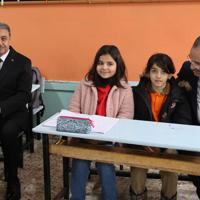
 Politics2 months ago
Politics2 months agoSoutheastern city enforces fines to tackle student absenteeism
-
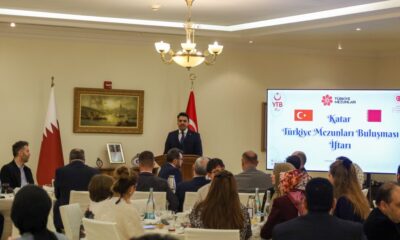
 Lifestyle2 months ago
Lifestyle2 months agoTürkiye’s Embassy in Doha hosts iftar for alumni to foster connections
-

 Refugees2 months ago
Refugees2 months agoInternational Women’s Day: global protests demand equal rights
-

 Daily Agenda2 months ago
Daily Agenda2 months agoTrump hangi ülkelere yasak getirdi.
-
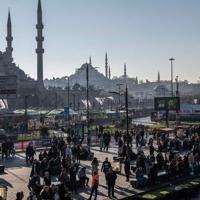
 Politics2 months ago
Politics2 months agoIstanbul ‘may break 110-year temperature record for March’
-

 Sports2 months ago
Sports2 months agoPaulista 19 maç sonra geri döndü, maç sonrası isyan etti
-

 Economy2 months ago
Economy2 months agoSweden to hold talks on countering soaring food costs


